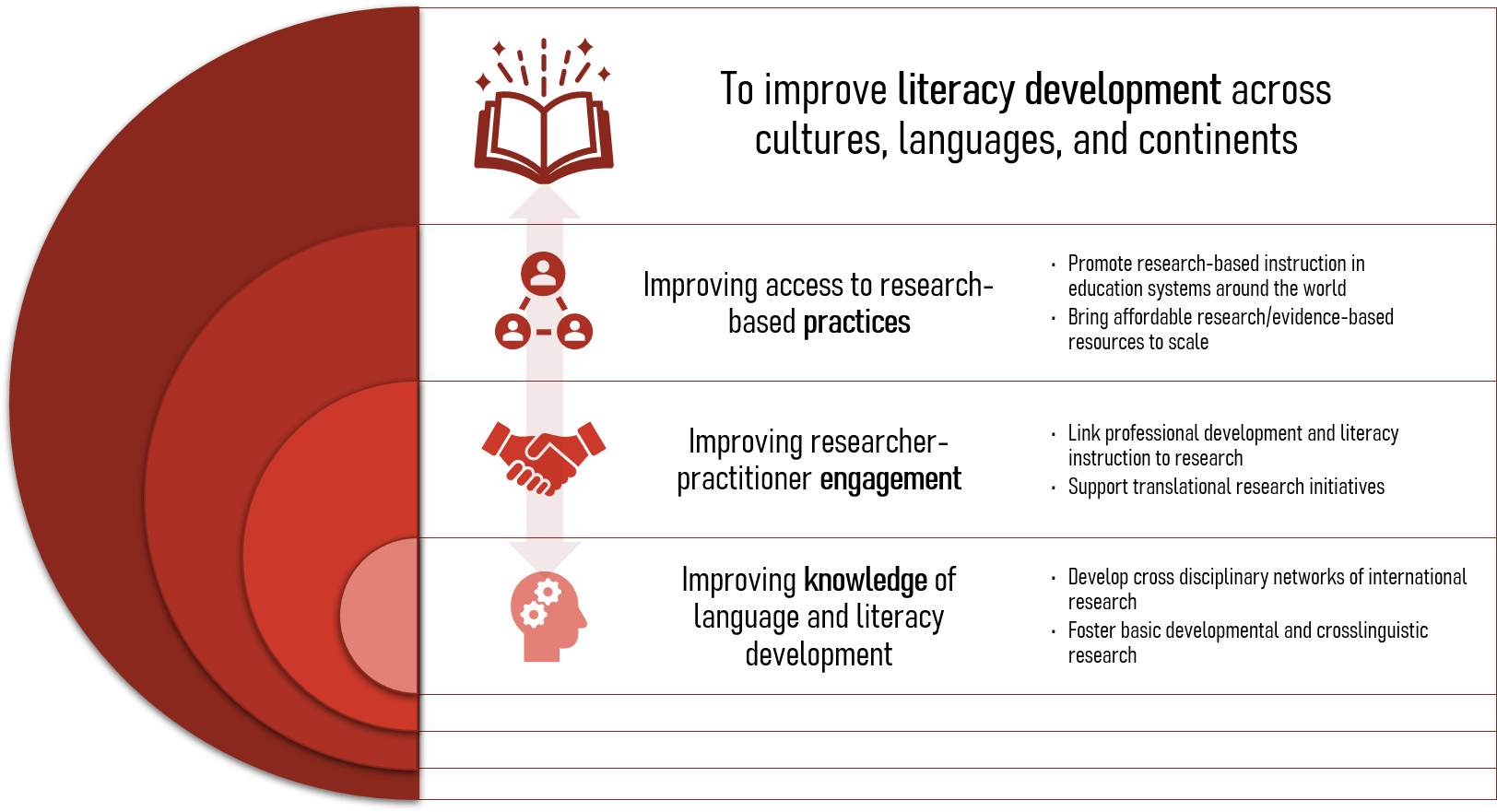
Literacy is a critical skill, allowing individuals to escape poverty and lead healthy, productive, and fulfilling lives. Although global literacy rates continue to rise, a significant number of children and adults, especially those in at-risk and vulnerable populations, remain illiterate or with only limited access to written language. While there are a variety of factors that can impact literacy acquisition, two key obstacles include:
- Ineffective researcher-practitioner models to support a shared understanding about literacy development (typical and atypical), quality literacy instruction, and effective implementation
- Limited and inefficient resources to develop scalable models in support of evidence-based instruction and intervention practices
While research is important to improve our understanding of literacy and how we might make instruction more effective, it is valuable/reaches its full value only when it influences practice. Currently, there are limited opportunities for research-to-practice dissemination. Present models depend on an individual researcher, research group, or organization influencing different constituents (e.g., policy makers, school leaders, educators, parents) or individual educators or educational organizations initiating conversation about ways to improve practice. Likewise, there are only limited opportunities for practitioners to engage with researchers to share their knowledge and experience in practice (e.g., environmental variables, case studies) as a way to inform future research. The resulting inefficiency in those models is one of several contributing factors to the difficulty of developing affordable, scalable, and accessible models to share knowledge and resources to support evidence-based instruction.